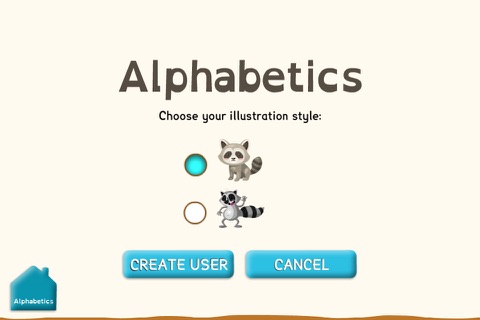
Alphabetics Free app for iPhone and iPad
Developer: For Dyslexia S.L.
First release : 12 Mar 2013
App size: 32.62 Mb
*** Try the first 3 letters for FREE. ***
*** Teaches the sounds and shapes of letters with MULTISENSORY games. ***
*** Developed in collaboration with experts in the field of education and reading difficulties. ***
Alphabetics will capture the attention of your child while she or he plays games that teach the shapes and sounds of the alphabet. It is a wonderful app for phonemic awareness and shape recognition!
NOTE: In I Can Alphabtetics Free you will have access to all of the features and games of the full app, but it will be limited to just 3 letters (b, f, m). To have the entire alphabet, look for the full I Can Alphabetics app.
Phonemes are the smallest units of sound in language and are an important step for learning how to read. Children will learn the most common phonemes represented by animal names with I Can Alphabetics.
Alphabetics is the first app of the I Can Suite. It was designed for children aged 3-6, but if your child is still struggling with beginning reading skills, it can be used at any age. For Dyslexia has done its best to assure the effectiveness of the app by consulting scientific and educational experts in the field of dyslexia. We are especially grateful to the mentorship provided by Dr. Guinevere Eden, Immediate Past President of the International Dyslexia Association and Director of the Center for the Study of Learning at Georgetown University.
What is taught:
•The shape and principal sound of each letter of the alphabet.
How it is taught:
•Through a series of simple exercises, children will hear, trace, pronounce and identify the letters. The letters are introduced in 6 small sets. After they complete a series of multisensory exercises, they are quizzed on their understanding before they can move on to the next set of letters.
How parents and tutors can use it:
•Through individualized Progress Reports parents and tutors can follow what children have practiced and learned for each letter of the alphabet.
This app is appropriate to use with children who have dyslexia because, as
Margaret Byrd Rawson, former President of the International Dyslexia Association (IDA), put so well:
“Dyslexic students need a different approach to learning language from that employed in most classrooms. They need to be taught, slowly and thoroughly, the basic elements of their language—the sounds and the letters which represent them—and how to put these together and take them apart. They have to have lots of practice in having their writing hands, eyes, ears, and voices working together for conscious organization and retention of their learning.”
We love getting feedback from our users. If you have any comments or questions, please send them to [email protected]
Copyright 2013 For Dyslexia, S.L.



